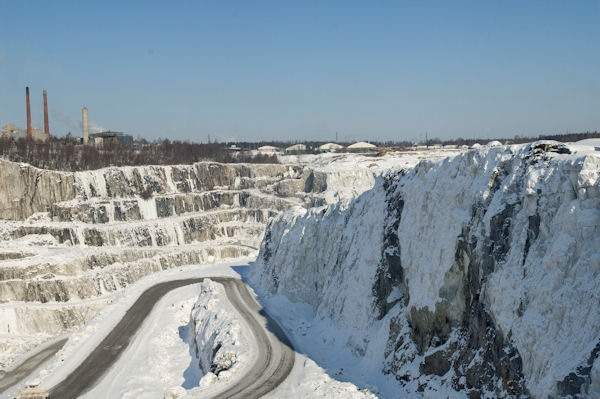
Putting Nordkalk’s circular economy strategy into practice.
Nordkalk has developed a new process for recovering the rare mineral wollastonite more efficiently in Lappeenranta, Finland. The fine-grained material, which used to be part of the tailings stored in the area, can now be separated as part of the flotation process and utilised in customers’ operations. This improves the availability of the mineral in demand and reduces the amount of tailings piled in the area.
This is a win-win situation for customers, Nordkalk, as well as for the surrounding area: we are able to recover thousands of tonnes of mineral that was previously wasted and, at the same time, reduce the amount of material disposed of. Virgin carbonate rock containing wollastonite can only be mined in limited quantities per year, but the circular economy product will enable us to increase the availability of this sought-after mineral,’ says Annica Lindfors, Director, Circular Solutions at Nordkalk Corporation.
The development of a wollastonite product based on the circular economy began in Lappeenranta more than two years ago, when Nordkalk had identified the promotion of circular economy as one of the priorities of its strategy. The development project began to explore its potential for the recovery of wollastonite from the flotation process of another mineral, calcite, which is also quarried in the area.
‘We knew that the tailings from the calcite flotation process contained moderate levels of wollastonite, but its recovery had not previously been considered possible. In the development project, we mapped out different options, and now – after numerous test runs and fine-tuning – we have achieved the desired result and can offer a sustainable circular economy product to our customers,’ says development engineer Hanna Kukkula from Nordkalk’s Lappeenranta unit.
Nordkalk’s customers have received the new product with interest. Today, the demand for wollastonite exceeds the supply, and especially during the COVID 19 pandemic, European customers appreciate the ability to supply the raw material from Europe.
‘As a European producer, Nordkalk has the advantage of a traceable supply chain and short transport distances compared to producers on other continents. The importance of this has been emphasised during the pandemic,’ says Juuso Hakala, Key Account Manager. ‘The first customer deliveries of the new product have gone to the metal and construction material industries, but there is interest in all customer segments.’
Nordkalk’s development work to increase wollastonite recovery does not end there. The next goal is to recover wollastonite from the tailings previously deposited in the area. The company’s long-term goal is to produce up to more than half of its wollastonite through circular economy.
‘The goal is ambitious but possible. We are currently investigating the opportunity, and the first results are encouraging,’ says Annica Lindfors.
Nordkalk is committed to promoting the circular economy in its operations. The goal is to utilise all the material extracted from the soil and to make the most efficient use of the company’s own and customers’ lime-based by-products. In 2020, the company managed to utilise 92.3% of the extracted material, and the circular economy accounted for 13% of the total sales volume.
Nordkalk is the only producer of high-quality wollastonite with its own deposit in Europe. The rare mineral is extracted and processed in Lappeenranta, from where wollastonite products are sent to customers in almost 30 countries around the world for use, e.g. in the manufacture of plastics, paint, and ceramics.
Additional information:
Annica Lindfors, Director, Circular Solutions, Nordkalk, tel. +358207537335
Juuso Hakala, Key Account Manager, Nordkalk, tel. +358207537339
Both email addresses are in the format firstname.lastname@nordkalk.com.
We use cookies to give you the best internet experience. By giving consent, you accept the use of cookies in accordance with our cookie policy.

When you visit any web site, it may store or retrieve information on your browser, mostly in the form of cookies. Control your personal Cookie Services here.